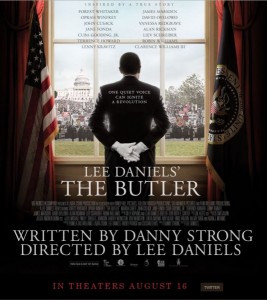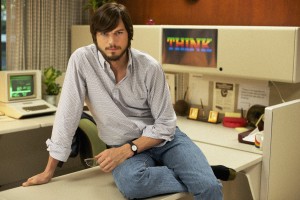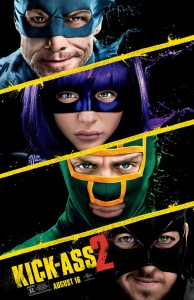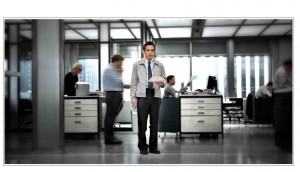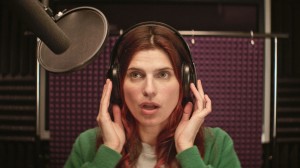Lee Daniels’ The Butler
Posted on August 15, 2013 at 6:00 pm
B+| Lowest Recommended Age: | Middle School |
| MPAA Rating: | Rated PG-13 for some violence and disturbing images, language, sexual material, thematic elements and smoking |
| Profanity: | Some strong language, n-word and other racist epithets |
| Alcohol/ Drugs: | Drinking and alcohol abuse, smoking |
| Violence/ Scariness: | Peril and violence including police brutality, lynching, murder, rape (off-camera), sad deaths |
| Diversity Issues: | A theme of the movie |
| Date Released to Theaters: | August 16, 2013 |
| Date Released to DVD: | January 13, 2014 |
| Amazon.com ASIN: | B00EV4EUT8 |
Washington Post reporter Wil Haygood was covering the 2008 Obama campaign when some young black women told him that they were going to vote for America’s first major party Presidential candidate who was African-American, even though their fathers told them not to. The generational chasm that separated the fathers who were not ready to see one of their heritage in the White House and the daughters who were inspired him to check to see whether there might be someone in the White House itself who was of that older generation. He found one, Eugene Allen, who had been a butler in the White House from the Truman administration to the Reagan administration, and who was planning to vote for Barack Obama, and Haygood wrote an article telling his story.
That story inspired this film, with Forest Whitaker as Cecil Gaines, born on a plantation in the Jim Crow south and serving eight Presidents while raising two sons. Like the young women Haygood met, the next generation had very different ideas and aspirations. The conflict between a man whose job was to serve by being “invisible in the room” had sons who wanted to be anything but invisible. As Sidney Poitier said to Roy Glenn in “Guess Who’s Coming to Dinner” in 1967, “Dad, you think of yourself as a colored man. I think of myself as a man.”
There are some awkward moments in trying to get through so much material so quickly, with just brief glimpses of some of the Presidents and some of the events. By the time we figure out that it is Robin Williams playing President Eisenhower, painting a landscape as Cecil serves him from a silver tray, his appearance is over. John Cusack has two juicy scenes as Richard Nixon. As the eager, if socially clumsy Vice President, he visits the kitchen to hand out buttons and ask the staff what issues are important to them. “As members of the Negro race,” he intones, as though they do not know who they are, “what are your biggest concerns?”
Later, Cecil sees the President unraveling under the impeachment proceedings. James Marsden has some of President Kennedy’s charisma, and Minka Kelly is lovely and utterly heartbreaking as Jackie, sobbing in the pink suit covered with blood that she could not bring herself to remove. Liev Schreiber shows us President Johnson’s swagger, leaving the bathroom door open so he can talk to his aides while he is on the toilet. Presidents Carter and Ford are seen only in brief archival footage, but Alan Rickman and Jane Fonda are both excellent as the Reagans, shown with more warmth and humanity than the caricatures we might expect.
This cavalcade of star power is just the frame. Director Lee Daniels and screenwriter Danny Strong (Danny Siegel on “Mad Men”) put the human story at the center of the tumultuous historic changes from the late 1950’s to the first decade of the 21st century. That gets a little didactic and clumsy. Cecil Gaines is given two sons, Louis (David Oyelowo of “Red Tails”) and Charlie (Elijah Kelley of “Hairspray”), so that Louis can become involved in the Civil Rights movement, from sit-ins to freedom rides, and then the Black Panthers and anti-apartheid, while Charlie goes to fight in Vietnam. But sensitive and heartfelt performances and the ultimate recognition by the characters that despite their estrangement, the connection between Cecil and Louis is powerful and unbreakable makes their reconciliation hit home. There is a distracting and unnecessary detour into the relationship between Cecil’s wife, Gloria (Oprah Winfrey) and a neighbor (Terrence Howard). And the cameos by big stars as the Presidents are distracting — and a grim reminder that even powerhouses like Winfrey, Whitaker, and Daniels and a relatively modest budget were not enough to get a Hollywood greenlight without some white stars. Some of the best scenes are when we see the African-American characters away from the “other face” they have to show whites, relaxed and joking in the White House locker room (Cuba Gooding, Jr. Lenny Kravitz) and or at neighborhood parties.
Ultimately, this is Cecil’s story. When he was a child, service was a chance to get out of the cotton field. In his first job away from the plantation, he learns to present a pleasant, respectful, and helpful face to the customers, to “make them feel not threatened,” to look at them only to “see what they need.” And he learns to stop using the n-word about himself or anyone else. When he comes to the White House, he is told, “You hear nothing. You see nothing. You only serve.” As for the issues, when it comes to the staff, “We have no tolerance for politics at the White House.”
While Louis and his friends are staging a sit-in at a segregated lunch counter, his father is serving dignitaries, wearing white gloves and a tuxedo. But all the courage and determination Louis shows in his passionate commitment to equality don’t reach the power of the moments when Cecil challenges the long-standing tradition of paying the African-American staff of the White House 40 percent less than the white staff, and not allowing them the opportunity for promotion.
“Darkness cannot drive out darkness,” the movie’s opening epigraph from the Reverend Dr. Martin Luther King tells us. “Only light can do that.”
Parents should know that this film includes strong language, drinking, drunkenness, and alcohol abuse, sad deaths, peril and violence including police brutality, rape, murder, lynching, racial epithets, sexual references and non-explicit situations.
Family discussion: Talk to members of your family about their own experiences before and during the Civil Rights era and read about some of the people and incidents mentioned in this movie, including Emmett Till, Pablo Casals, and James Lawson.
If you like this, try: The Autobiography of Miss Jane Pittman, “Eyes on the Prize,” and “The Remains of the Day” and the books The Butler: A Witness to History
and White House Butlers: A History of White House Chief Ushers and Butlers

